-
Search -
Accessibility -
Members Login
Maison de la Paix
ICVA
Conference
English
Coordination
Annual Conference
Registration is now closed. If you are interested in attending the Annual Conference and the CHS global launch, please contact conference@icvanetwork.org
ICVA members operate in an environment marked by increasingly evident breaches of international norms and values. The fundamental tenets of humanitarianism are facing challenges, with the space for NGOs and other civil society actors to deliver assistance and protection steadily diminishing.
The effectiveness of humanitarian efforts relies on gaining acceptance, wherein accountability, credibility, and trust play pivotal roles in striking a vital balance between principles and practical considerations. This balance between the two is an ongoing negotiation process among humanitarian actors themselves and with the various other stakeholders, including communities, local leaders, states, and non-state actors, upon whom they depend on to facilitate their work.
Coordination helps achieve this balance.
As those responsible for the largest share of delivery of humanitarian assistance and protection, NGOs have much at stake when it comes to rethinking coordination and improving accountability, credibility and trust in principled humanitarian action.
The 2024 ICVA Annual Conference will bring together ICVA members and partners to share their experiences, discuss challenges and identify ways forward around the following questions:
| Time | Topic |
| 09.00-10.00 | Registration, Coffee and Networking |
| 10.00-10.15 | Welcome and scene setting by ICVA Executive Director |
| 10.15-12.00 | Session 1: The Erosion of Trust and Principled Humanitarian Action |
| 12.00-13.30 | Lunch and Networking |
| 13.30-15.15 | Session 2: Our Ability to Deliver Aid at the Core of our Credibility |
| 15.15-16.00 | Coffee Break and Networking |
| 16.00-17.00 | Core Humanitarian Standard Global Launch |
| 18.00-20.00 | Reception |
Opening Session
Welcome and scene setting by ICVA Executive Director.
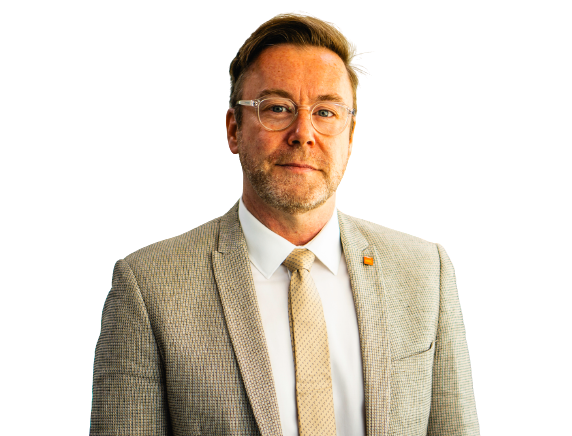
Trust is essential for humanitarian access to deliver life-saving services. It requires demonstrating integrity, consistency, efficacy, accountability, and respect. However, in the current divisive climate, humanitarian principles and international humanitarian law are under threat, leading to pressures on humanitarian actors and risks of instrumentalization. Compromises to principles for short-term access raise questions about trust and acceptance in the medium term.
Additionally, there’s a trust deficit and friction within the humanitarian system due to unequal power dynamics and weak consultation processes, impacting joint problem solving and coordination. ICVA members are challenged to meaningfully engage in coordination mechanisms and navigate access challenges jointly due, in no small part, to an absence of trust.
Session objective:
This interactive session aims to explore the relationship between trust and the humanitarian principles, and what humanitarian NGO leaders can do to build trust and promote IHL in an increasingly polarized and divided world.
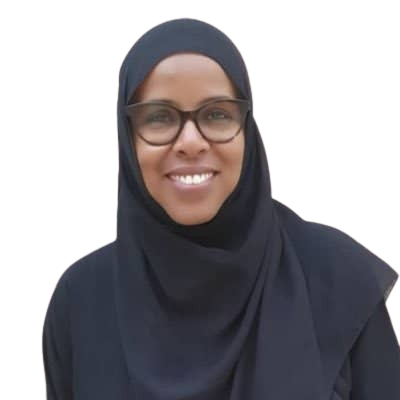
Nimo leads the Somali NGO Consortium (SNC), a coordination mechanism of NGOs for NGOs. Given the highly insecure environment, the complexity of the operating environment and the large numbers of agencies working in Somalia, a coherent and unified NGO voice is critical to successful development policies and humanitarian assistance provision.
At the global policy level, she co-chaired the IASC Result Group One Subgroup on Localization. As co-chair she steered the production of the IASC Guidance on Strengthening Participation, Representation and Leadership of Local and National Actors in IASC Humanitarian Coordination Mechanisms[1]. She is now ICVA representative at the IASC Operational Policy and Advocacy Group (OPAG).
Ms Hassan has over 15 years of experience in both the humanitarian and development programming and approaches. She has specialised in delivering programs that empower vulnerable persons and marginalized communities particularly, refugees, urban youth, women and young girls. She has built close working relationships with key States and donors, namely the EU, UKAID, USAID, SIDA, SDC and the Qatari Foundation. As a result, Ms. Hassan brings significant expertise in managing and leading complex partnerships and multi-sectorial humanitarian and development programs.
She has a MA in Development Studies from the University of Manchester, United Kingdom, and training, in Sustainable and Inclusive Programmes, Protection, Economic Empowerment and Integration. Ms. Hassan has held several positions with CARE International, Africa Educational Trust, Candlelight for Environment, Education and Health in Somalia, including Education Manager, Advisor, and Consortium Coordinator. She has a keen passion for education. As a Consortium Coordinator she managed a secondary education program covering the whole Somalia/Somaliland while working for Africa Educational Trust. Ms. Hassan has lectured at Amoud University, Somaliland, and The Manchester College in Manchester UK.
[1] IASC Guidance on Strengthening Participation, Representation and Leadership of Local and National Actors in IASC Humanitarian Coordination Mechanisms – For HCs, HCTs, Cluster & Inter-Cluster Groups & Other Related Task Forces & Working Groups, July 2021
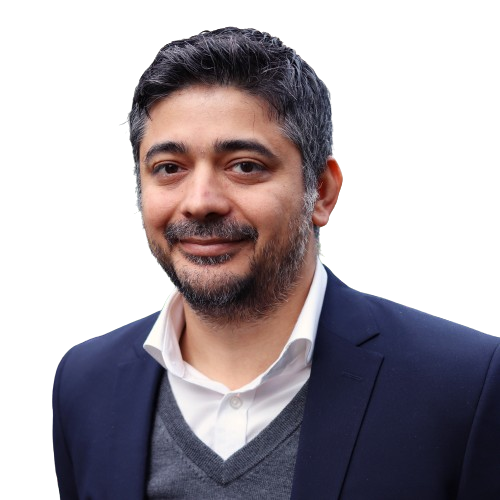
Before taking up this role in 2022, he had been involved in the CCHN’s work as Chief of Advisory Services, providing humanitarian agencies with advisory support in the management of negotiation processes.
During his 10-year tenure at the World Food Programme, he served in various roles in the field as well as in leadership positions at the organization’s Rome Headquarters; most recently, as the Deputy Chief of Staff. Rehan has negotiation experiences across a range of contexts, including Yemen, Venezuela, Afghanistan, Sudan, South Sudan.
Rehan holds a Master of Public Affairs in Social and Economic Policy awarded by the University of Texas LBJ School of Public Affairs (USA) and a Bachelor’s Degree in Economics awarded by the Lahore University of Management Sciences (Pakistan).
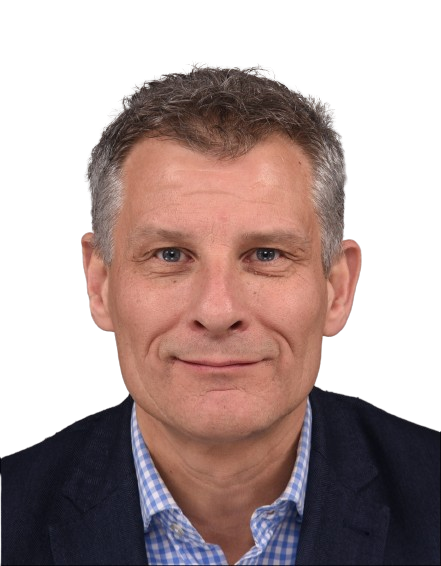
Ed brings to HERE three decades of experience in humanitarian affairs both at the global level and on the ground. He has led major reviews and evaluations of collective responses to large-scale humanitarian crises as well as of the work of UN and non-UN humanitarian agencies. He has also been part of a number of major international bodies and forums that are responsible for humanitarian coordination, policy development, and standard setting. Ed’s special interests include humanitarian law and principles; protection and rights; inter-agency coordination; and quality and accountability of humanitarian actors.
Before HERE, Ed was the Chief Executive of DARA in Madrid (2012- 2014) and led ICVA, the NGO consortium for humanitarian action in Geneva (1999-2011). Earlier, he worked with MSF, where he co-created the humanitarian affairs department in Amsterdam and worked as a humanitarian affairs officer is several crisis areas. Ed is a member of the Supervisory Board of Stichting Vluchteling, a Dutch NGO that works for refugees and internally displaced people in crises.
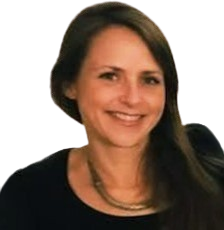
Maria has over 12 years of experience in humanitarian settings across the Middle East, East Africa, and South Asia. Now based in Nairobi, she provides technical and operational support to IRC’s Country Programs globally to open and improve humanitarian access, including to develop and implement strategies for humanitarian access, and guidance and training on negotiations and engagement.
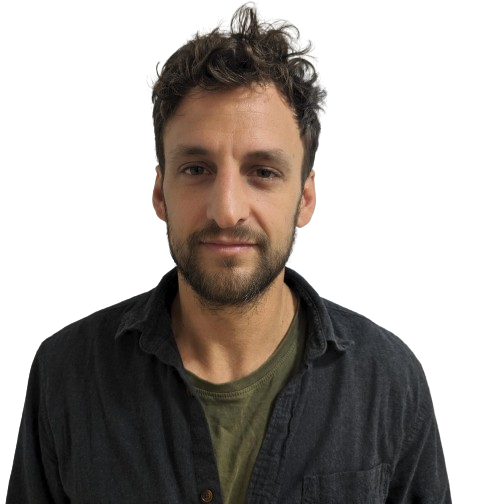
Mirno Pasquali has extensive experience in program management, access facilitation, coordination, and advocacy within diverse humanitarian settings, including Yemen, Iraq, and Bangladesh. Starting in 2022, Mirno took on the responsibility of establishing DRC’s Global Humanitarian Access Unit and leading the implementation of DRC’s Hard to Reach Initiative. This strategic initiative aims to systematically identify, access, and provide programs for Hard to Reach populations across DRC country operations.
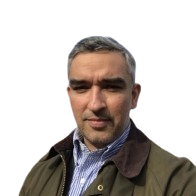
Kiran is the current Head of the Humanitarian Access and Armed Actors Relations Unit at Save the Children. Previously, he served as a strategic advisor within the team, focusing on protecting children in conflict situations. Before that, Kiran gained extensive experience as a field researcher, analyst, coordinator, and advisor, specializing in serious crimes, rights, and laws aimed at safeguarding civilians and children during conflicts and crises. His background spans across international and non-governmental organizations.
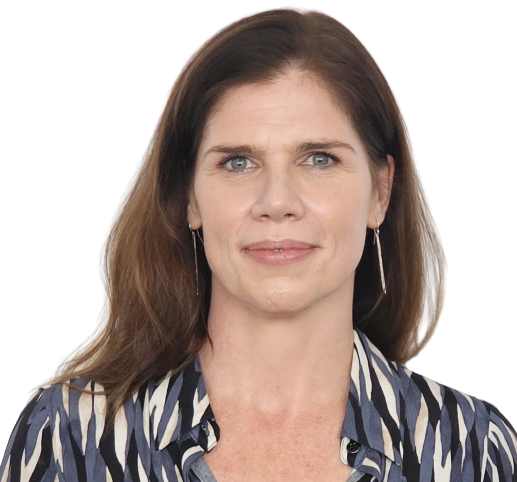
Eileen supports the Humanitarian Coordination team, with a strong focus on COVID-19 vaccination. Prior to this she was funded by ICVA as the Ethiopia Humanitarian INGO Forum Director. She has worked as Country Director for Concern Worldwide in Ethiopia and Nepal and has a wealth of experience leading and coordinating humanitarian response with NGO and INGO partners in contexts as diverse as Kenya, India, Uganda, Tanzania and Haiti.
She holds a masters in Humanitarian Assistance (NOHA) from the Rijksuniversiteit Groningen, and a bachelor of arts in Psychology from University College Dublin.
Session One Summary Report:
Amid increasingly complex and politicized humanitarian contexts, the fundamental measure of success remains simple: can we ensure the necessary assistance and protection reaches those in need?
The humanitarian system has in recent years seen a multiplying of tools and policies in an attempt at providing better quality aid. Despite these improvements, we have largely been unable to address our increasing inability to fulfil our core function. In Burkina Faso, Myanmar, Sudan, Eastern Ukraine, and now Gaza, we are simply not able to respond to the needs at the necessary speed and scale. Failures on this front undermine accountability and credibility with donors and communities.
Our credibility hinges on our ability to deliver aid effectively, even as the landscape evolves. If adaptation is a necessity, we need to ensure that whatever form humanitarian action takes in the future, it is still able to fulfil its core function, at the risk of losing the trust of the very people we aim at serving. While political solutions are beyond our scope, can we take steps to ensure unhindered aid delivery until these blockages are resolved?
Session objective:
Building on the morning’s first session, session 2 will aim at taking a frank look at existing operational contexts, outlining the core issues that have led to our inability to respond fully, to encourage an equally frank discussion among the audience on the future of humanitarian assistance.
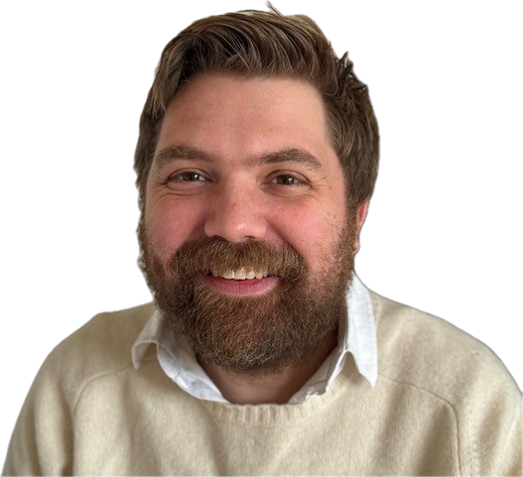
Garth is an experienced humanitarian practitioner, with over 13 years working conflict and disaster contexts. Currently leading humanitarian and emergency response advisory and consulting work, he was the former head of the Syria INGO Regional Forum (SIRF) from 2021 – 2023, overseeing coordination and representation of INGOs and networks across Syria and neighbouring countries. Garth has spent several years in operational leadership roles with INGOs, as a former Chief of Party, Country Director and Regional Representative, as well as time as a consultant and advisor for the UN and UK government. He specialises in humanitarian coordination and crisis response, having sat on and supported NGO and UN coordination platforms working on responses across Africa, the Middle East and South Asia.
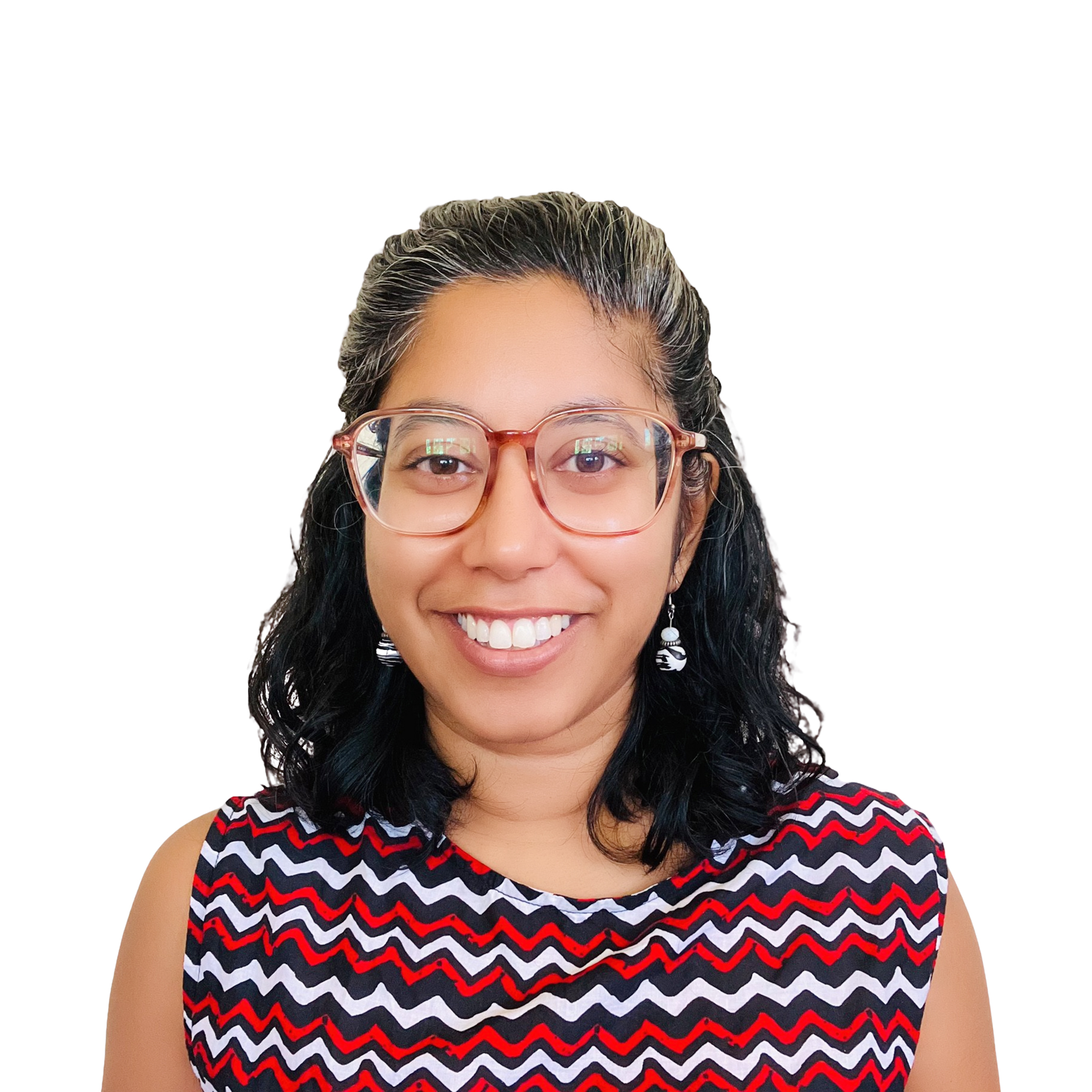
Keya joined ICVA in 2020 and hopes to translate her experiences working in gender and health across the development and humanitarian space into an asset for the work of ICVA in the region.
She has over 12 years of experience working with local and international NGOs in the Asia Pacific Region including the Red Cross and International Planned Parenthood Federation (IPPF). She has worked with a diverse country portfolio, including Myanmar, China, Indonesia, Afghanistan, Nepal, Philippines and PNG. Her work has focused on strengthening engagement of local NGOs in the humanitarian system, emergency preparedness and partnership development.
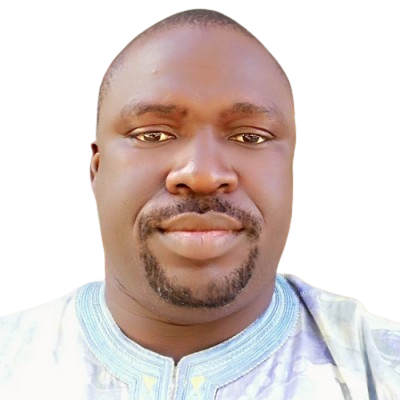
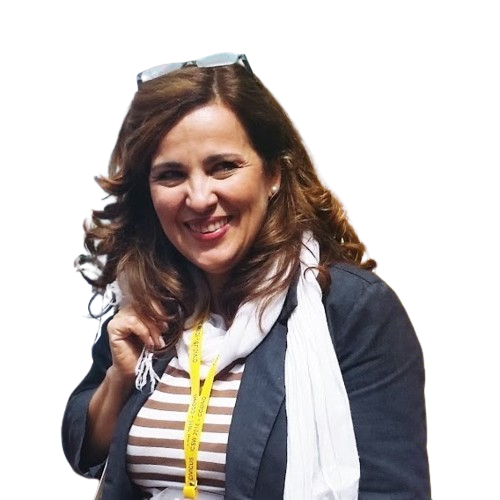
Diana Vegas Castro, a sociologist from Venezuela, specializes in Social Management and has over 30 years of experience in Social Development and Humanitarian Assistance projects in Venezuela. Her focus is on strengthening the social and productive fabric of communities to foster transformative leadership and enhance local democracy.
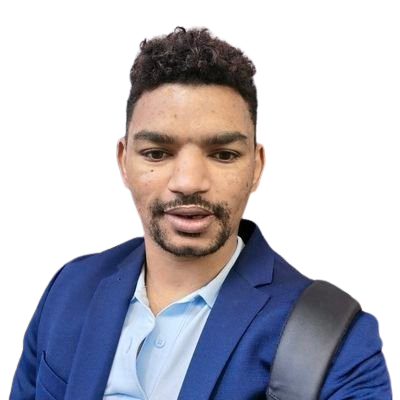
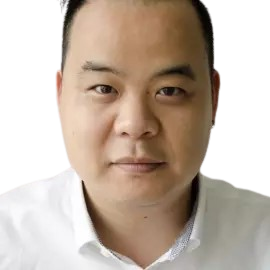
Irwin Loy is a policy editor at The New Humanitarian, a news agency that reports on conflicts and disasters to inform prevention and response. He covers aid policy and what it means for people living in humanitarian crises.
Join us for the global launch of the updated Core Humanitarian Standard (CHS), a significant milestone resulting from the collaborative efforts of numerous organizations and individuals dedicated to enhancing quality and accountability in aid.
You’ll learn why and how the CHS has been strengthened and gain insights from diverse speakers on how the standard will drive greater accountability, prioritising the needs of people affected by crises.
The launch will be organised as a hybrid event, allowing you to participate online or to join us in person in Geneva.
The event will be conducted in English, with simultaneous interpretation available in Arabic and French. Secure your spot by registering now.
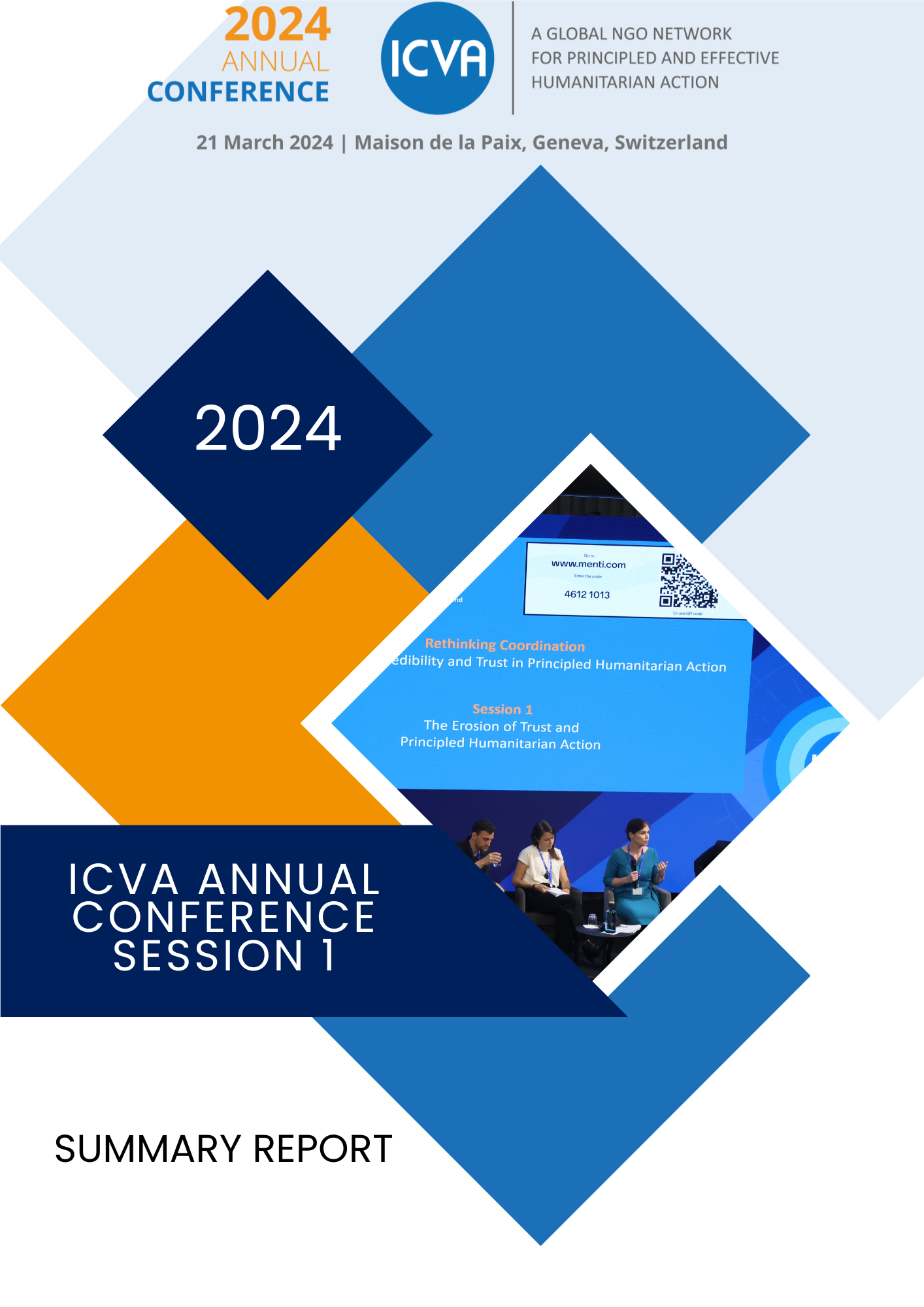
The ICVA Annual Conference Session one focused on trust among NGOs in addressing humanitarian dilemmas and upholding principles, emphasising how these factors influence trust-building or erosion within the humanitarian system.
Click on the below link to read the Summary Report.